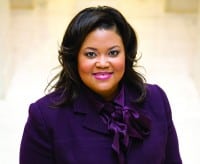Can FERC Nominee Honorable Beat the Clock?
Washington, D.C. – With the departure of John Norris, the Federal Energy Regulatory Commission may once again face a long period of a vacancy on the five-member commission. While the Obama administration has announced its intention to nominate Colette Honorable, chairman of the Arkansas Public Service Commission, to fill the vacancy, the clock is working against getting the nomination confirmed before the November congressional elections.

Congress convenes next week after a month off and the plans, according to the Washington Post, are for an abbreviated schedule featuring little or no drama, giving the solons a quick return to their homes and reelection campaigns. The current plans are for no more than 15 working days in September before turning entirely to campaigning. Senate Majority Leader Harry Reid (D-Nev.) has said he plans to have the Senate work through Sept. 24 and then recess until after the November election.
That doesn’t leave much time for the administration to complete the vetting and paperwork needed for a Senate confirmation. It also doesn’t leave much time for a Senate Energy Committee confirmation hearing. Then Reid has to schedule the nomination for a vote, along with a long list of nominees for other positions that were waiting for approval when Congress left Washington for the month of August.
There does not appear to be any controversy over the Honorable nomination, although that could change as staff and reporters begin to dig into the details of her background. And Senate Republicans can’t filibuster the nomination, a result of Reid’s use of the “nuclear option” to change the Senate’s rules last November. But getting her confirmed could turn out to be a version of the old television show “Beat the Clock.”
If the backload of nominations are put off until after the elections, the confirmation prospects could be different. If the Democrats keep control of the Senate, which appears unlikely but not impossible, then Reid is likely to move briskly on administration nominations during the lamentably inevitable lame duck session between the election and the new Congress.
If the Republicans win control of the Senate for the next two years, then Reid, even with his changed rules, probably will face a protracted Republican rear guard action to stall all Obama administration appointments until the new Congress takes its seats in January. Then Minority Leader Mitch McConnell of Kentucky will replace Reid (assuming McConnell wins his reelection campaign, which is not a given).
How will FERC function with four-of-five commissioners on board? The commission managed to move along reasonably well in the months after Jon Wellinghoff stepped down last November, with acting and now fully-empowered Cheryl LaFleur as chairman. But the newest member and chairman in waiting Norman Bay, nominally a Democrat and formerly FERC enforcement chief and a federal prosecutor before that, is a cypher. He’s also close to Wellinghoff, who appears to have continuing influence at FERC through his relationship with his patron, Reid.
LaFleur, a Democrat, is the only commissioner with significant industry experience. She generally has served as an honest broker bringing realism to the commission’s work. Democrat Norris was more of an ideologue, with a penchant for green visions of FERC policy and a tendency to bloviate. Republican Philip Moeller is a right-leaning policy wonk with congressional staff and lobbying experience. Republican Tony Clark is an amiable conservative former North Dakota utility regulator who tends to tilt toward state regulation rather than federal control. Lafleur, Moeller, and Clark all appear, at least publicly, to get along together quite well.
FERC has never been a particularly partisan body, although the policy tendencies of the commissioners have been important. The curtain may lift on how it will function going forward September 18, when the commission holds its first meeting with Bay formally on board.